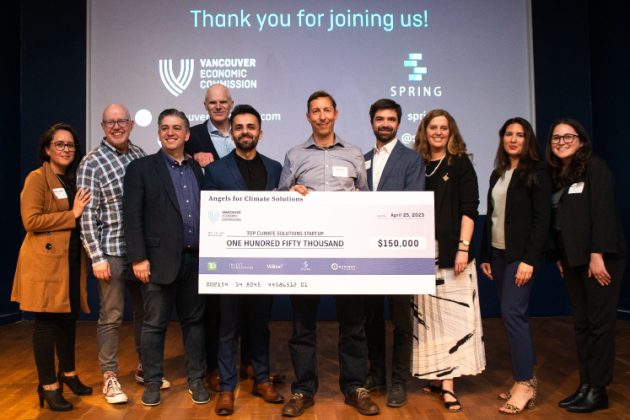As part of our ongoing efforts to recruit top talent for Vancouver’s tech companies, the Vancouver Economic Commission (VEC) and HR Tech Group are hosting the University of Waterloo’s director of career services at an info session on May 4 in Vancouver for HR representatives. The VEC is also headed to the University of Waterloo to lead an info session on May 30 for the Hire Waterloo event. Vancouver will be the only city holding one of the sessions, which will otherwise be led by leading tech companies such as SAP, Amazon, Google, Linkedin, Facebook and Uber.
Talent. It sets you apart from your competitors…but you can’t afford to wait for students to graduate before you scoop them up. Start building a talent pipeline that pays off in the years to come.
We’ve been doing co-op for nearly 60 years, and as a result, have learned more about student recruitment than anyone else in the world. Over the years, we’ve built up a network of 6,300 active employers in over 60 countries. The only explanation we can give is that our students must be worth it. In fact, when you see what they’re capable of, it’s a true inspiration
These savvy employers have taught us a few things about how they recruit top talent. From large, complex multinationals to three people start-ups, our employers have found a way to hook great students.
The first place to start is with the job description you use to attract them. Your job description is you – what your organization is about, your culture, your values, your credo. Gone are the days of generic, cut and copy descriptions that describe functional tasks. Great talent doesn’t come along by accident. It’s time to up your game.
7 Ways to Hook a Millennial:
1. Students are valued – Explain why the position matters
Students/new grads want to make an impact. Show them how the job is important within the organization so they can understand how their contribution will make a difference.
2. Be real – List the real main responsibilities
Tell applicants their potential responsibilities in a handful of concise bullet points, but don’t go overboard. Remember – keep it scannable.
3. Keep it clear – Drop acronyms or industry jargon
Only common words should be used in student or entry-level job descriptions. It’s easy to fall into corporate lingo.
4. Paint the picture – Describe what’s in it for them
Let applicants know what they’ll gain from working in the position. Salary and benefits are important, but they’ll be excited to learn about the lesser-known rewards such as skills or professional connections they may gain or how the work experience will help them advance their careers.
5. Be approachable – Ask for the true minimum requirements
Some students and new grads don’t feel qualified enough to apply for even entry-level jobs if they don’t fit all of the listed requirements. Help them out by explaining what you’re really looking for in a candidate. You may scare qualified applicants if you inflate your requirements.
6. Cut to the point – Define essential skills
You may want to list essential skills or “must haves” in a separate category from non-essential “nice to have” skills.
7. Brag … Share the fun stuff!
If your workplace has additional creative benefits, such as a cheese club, bowling team, chilli cook-offs, share them! Students and new grads want to know how the workplace functions so they can picture themselves in the role. Make it brag worthy.
 Suman Armitage
Suman Armitage
Suman is the Director of Communications and Marketing for Co-operative Education & Career Action at the University of Waterloo. If you’re interested in discussing other great ways that Waterloo can help build Vancouver’s talent pipeline, drop them a line at hire.talent@uwaterloo.ca. They have staff in Vancouver.




